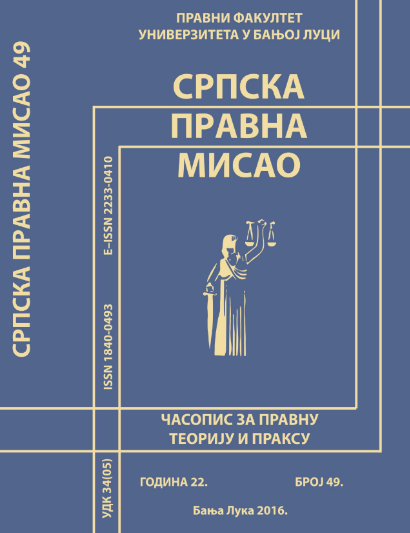THEORIES ON THE ORIGIN OF MANDATE
DOI:
https://doi.org/10.7251/SPM162249005BAbstract
The mandate as a bilaterally unequally binding contract deviates from the rule of synalagmaticity in the group of consensual contracts. Precisely by bringing into connection the fact that the mandate is a bilateral unequally binding contract (contractus bilateralis inaequalis) and that it belongs to the group of consensual contracts, a very simple question arises about the origin of that institute. Was there an institute similar to the institute of mandate in civil law that Roman jurists adapted and based on the characteristics of that institute created an institute that will be accessible to foreigners and regulated by the principles of good faith, while maintaining gratuity as an essential determination of the legal nature of the contract because it originates from friendships and duties? A credible answer to this question can only be given if novelistics finds new sources that will confirm the already existing hypotheses that have been formed through numerous theories about the origin of the mandate.
Downloads
Published
Issue
Section
License

This work is licensed under a Creative Commons Attribution-NonCommercial-NoDerivatives 4.0 International License.



